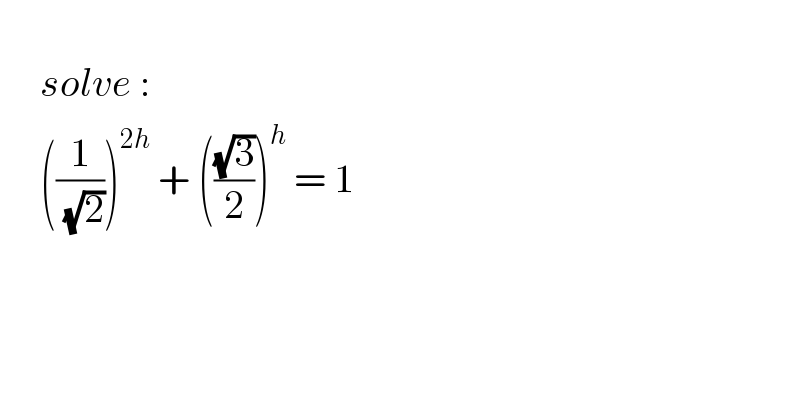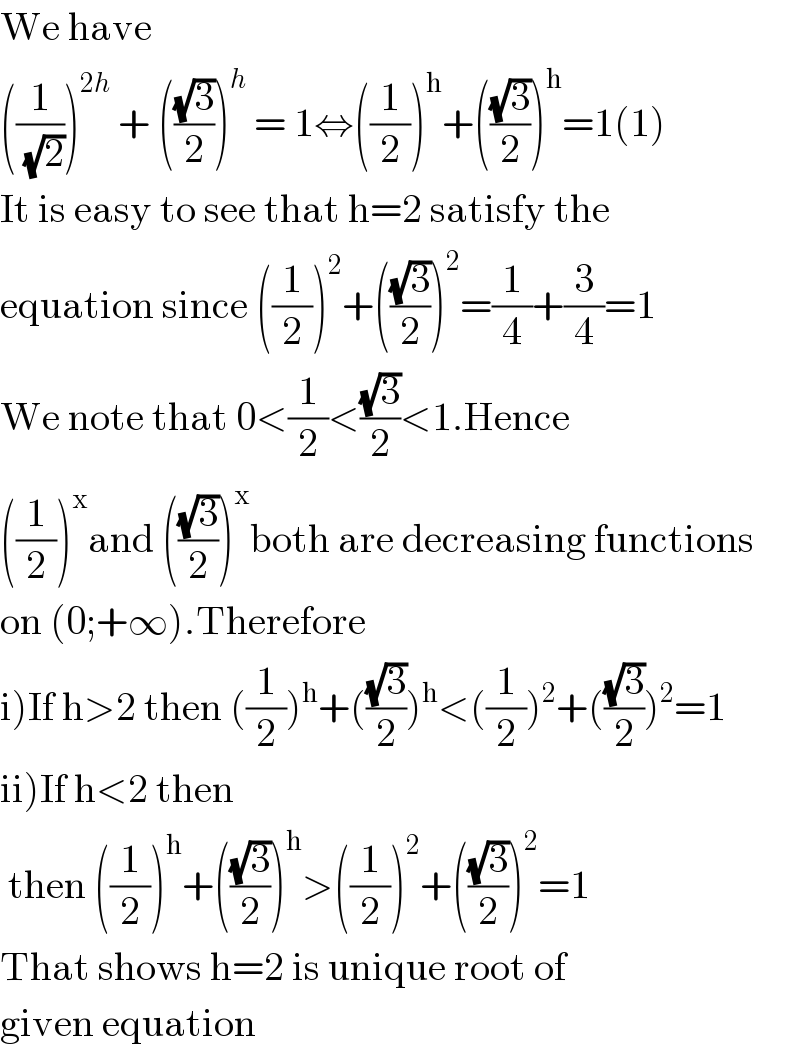
Question and Answers Forum
Question Number 116610 by moh175 last updated on 05/Oct/20

Commented by Dwaipayan Shikari last updated on 05/Oct/20

Answered by 1549442205PVT last updated on 05/Oct/20

| ||
Question and Answers Forum | ||
Question Number 116610 by moh175 last updated on 05/Oct/20 | ||
 | ||
Commented by Dwaipayan Shikari last updated on 05/Oct/20 | ||
 | ||
Answered by 1549442205PVT last updated on 05/Oct/20 | ||
 | ||
| ||